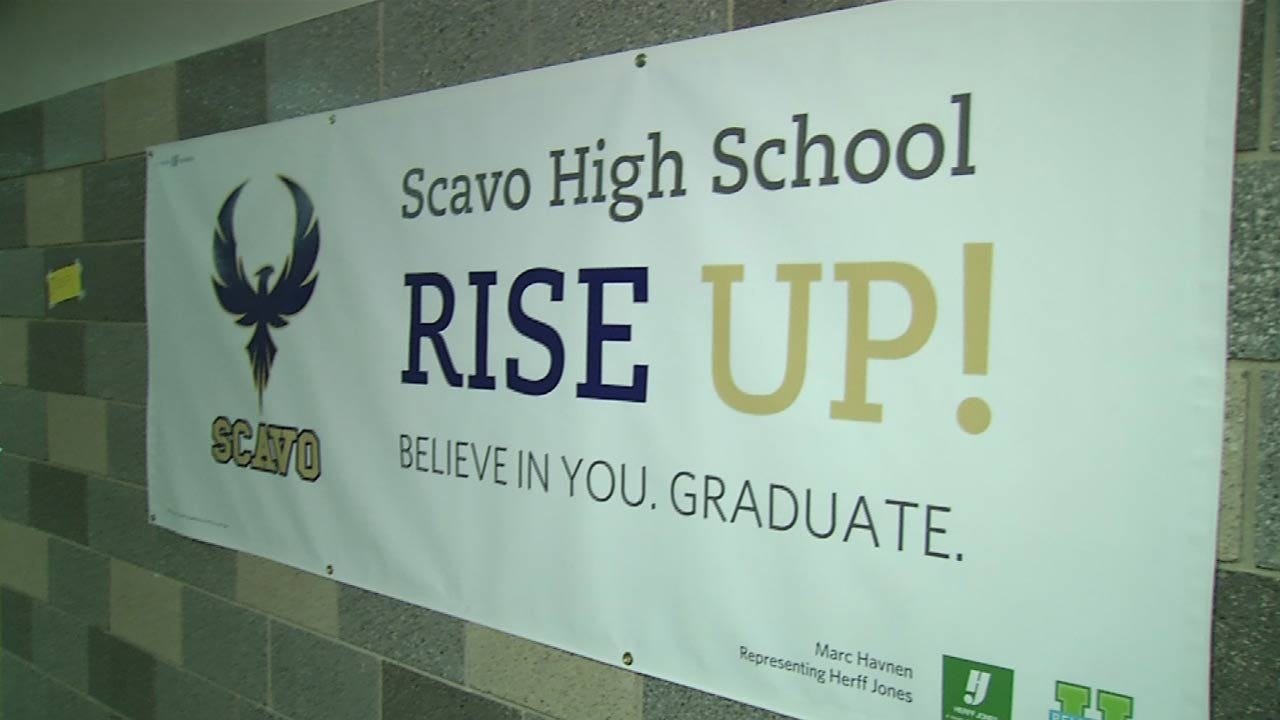Iowa's Alternative Education Program Could Help Improve OK Education
<p>We visited Iowa, the state with the highest graduation rate in the nation, for a look at one of their alternative education programs.</p>Wednesday, August 24th 2016, 10:55 pm
Thousands of Tulsa Public School students headed back to class this week, and statistics show as many as a third of them will drop out before graduating from high school.
That puts them at greater risk for everything from poverty to prison.
Tonight we visit the state with the highest graduation rate in the nation, Iowa, for a close-up look at what it takes to be number one.
On a rainy day in downtown Des Moines, students make a dash for Central Campus - a renovated Model-T factory building, which, in four floors, houses everything from a world-class marine biology lab, to bioscience, broadcasting, fashion design, automotive repair and culinary science.
The building is also home to Scavo High, a school for high-risk, non-traditional students that encapsulates Iowa’s dedication to trying to ensure every student begins adult life armed with a high school diploma.
“It’s a variety of reasons why students struggle and schools don't work,” said Principal Rich Blonigan. “There's no blueprint - this student will make it, this student won’t…One event could change that dramatically.”
So at Scavo, they pull out all the stops; and the road to graduation begins with Mary O'Hearn, one of the school's two success case managers.
Terry: “You literally will go out and get the kids and bring them to school.”
O’Hearn: “Right. That's where my co-worker is; actually on her third trip.”
And that is just the beginning of Scavo's effort to try to remove the barriers keeping kids out of school; because many students have work or family responsibilities, the hours at Scavo are flexible.
Blonigan said, “We actually have school available to students from 8:30 a.m. till 6:00 at night.”
The building is equipped with its own food pantry, there's a medical and dental clinic on site and a daycare open to children from two weeks to three years.
Nina Punelli, a 17-year-old student at Scavo, also happens to be the mother of twin daughters.
“I wanted to stay in school not only for myself but to show them that you can do what you want if you put your mind to it,” she said.
In a traditional classroom setting, Punelli knew she was facing an uphill battle, but not a Scavo.
“The teachers are one on one with you. You have a stronger connection with the teachers and you can talk to them about your personal life,” she said.
Scavo students can enroll in any of the enrichment programs offered at Central, and the special services offered on their floor are available to any student in Des Moines Public Schools.
Paying for all of it doesn't come cheap, of course, but much of the money for Scavo comes from Iowa's dropout prevention tax, which brings in more than $100 million a year; an effort that appears to be paying off.
Blonigan: “Our enrollment since we moved back here has gone from 300 students to around 550 students.”
Terry: “In a year and a half?”
Blonigan: “Yup. Absolutely.”
Scavo's graduation rate is still much lower than Des Moines' traditional schools, but it’s almost tripled in the past 10 years - an accomplishment celebrated on a special board in O'Hearn's office.
“I do it because I love to have that relationship with the young people, and it’s so awesome to see them walk across the stage and get the diplomas and go on from there to something else,” she said.
And, among those expected to walk the stage this year is the mother of twin girls, who's now got her sights on nursing school.
“I've done great. And I'm glad I'm graduating early,” Punelli said.
Street School, Tulsa's alternative high school, also has a well-deserved reputation for success, but they are only able to serve about 95 kids a year and have to maintain a waiting list.
And while Street School's budget is about $1.4 million, only $150,000 of that comes from the state.
More Like This
August 24th, 2016
November 13th, 2024
October 28th, 2024
October 17th, 2024
Top Headlines
January 15th, 2025
January 15th, 2025
January 15th, 2025












